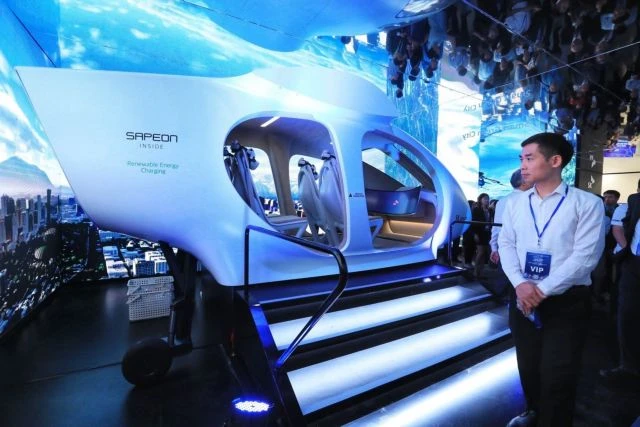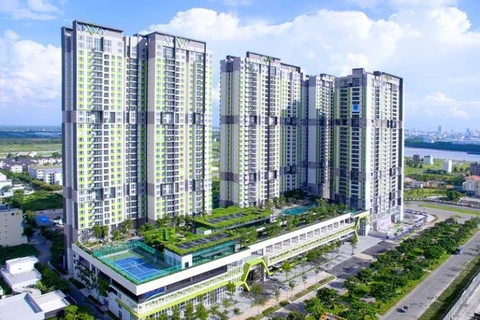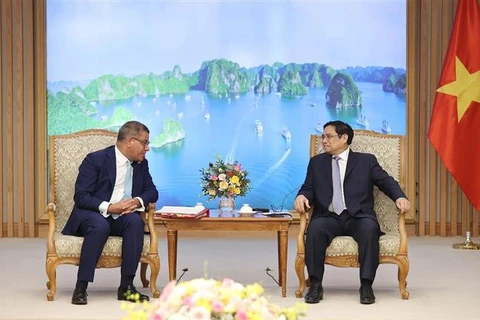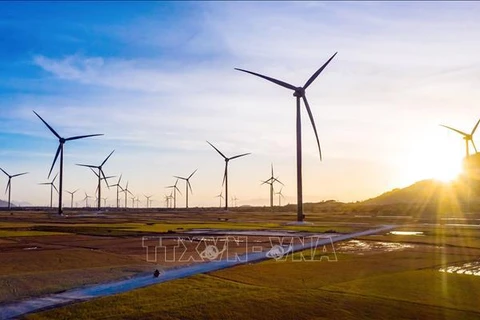
Hanoi (VNS/VNA) - Vietnamese businesses need to proactively apply science and technology, as well as intellectual property as a lever in their development strategy to promote production in a green and environmentally friendly direction, said Luu Hoang Long, Director of the Department of Intellectual Property under the Ministry of Science and Technology.
Innovation towards net zero is gradually being targeted by the business community in the context of complex climate change developments.
The journey towards net zero affirms the urgency in applying science and technology to businesses' production to contribute to implementing commitments at the 26th Conference of the Parties to the United Nations Framework Convention on climate change (COP26).
Long said innovation is a process of continuous movement, while intellectual property is the result of the innovation process.
It also serves as a catalyst and an input to promote innovation. Intellectual property is the foundation and used as a tool to encourage innovation in each country, leading to different developments depending on each country's factors.
To realise Vietnam’s net zero commitment by 2050, it is necessary to create policy mechanisms that directly impact businesses on the journey towards net zero, he said.
Nguyen Quan, Chairman of the Vietnam Automation Association, said smart and green production along with innovation are not just trends, but also key factors for businesses to succeed in the digital era.
Thanks to the combination of operational technology and information technology, smart manufacturing and green manufacturing have helped businesses increase efficiency, optimise green production processes and enhance their competitive position, he said.
“The net zero commitment is the key for businesses to transition to sustainable business models. This is also the premise for each business to improve its competitiveness and meet the requirements of international economic integration.
“Commitment to sustainable development of businesses and application of digital technology is an important premise to ensure that total national greenhouse gas emissions reaches zero net emissions by 2050,” he said.
According to Long, in each country, intellectual property brings both challenges and opportunities for innovation activities, directly impacting the implementation of sustainable development goals.
In Vietnam, policies and laws on intellectual property have been basically completed. The Law amending and supplementing a number of articles of the Intellectual Property Law contributes to promoting innovation based on intellectual property rights, improving the capacity to exploit intellectual property rights.
Many provinces, cities, universities, research institutes and large enterprises have policies to support and promote the development of intellectual property and encourage the creation, protection and application of new technical solutions. That has increased the number of patent applications submitted to the Intellectual Property Office./.






















